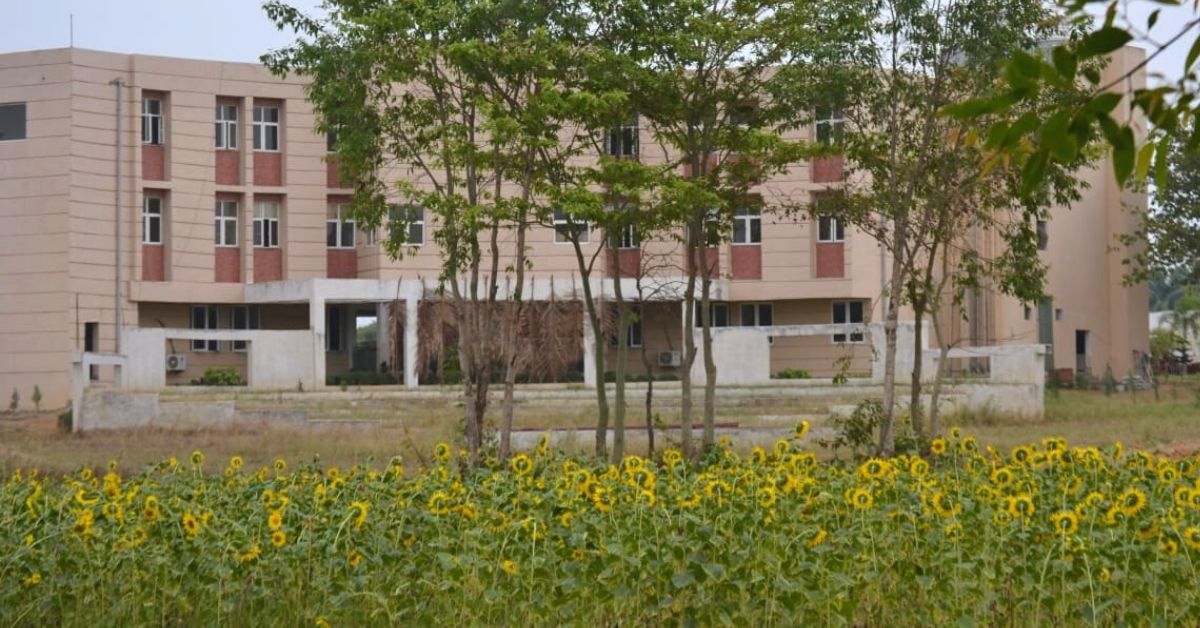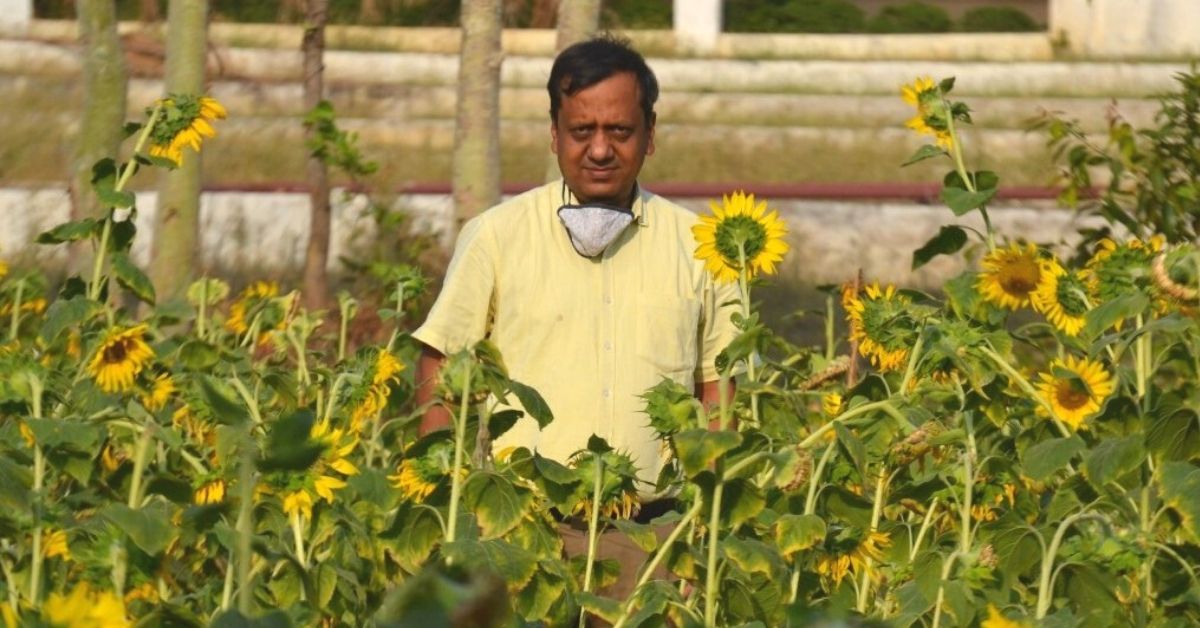Imperial College in Bargarh district of Odisha is spread across a nine-acre area with an abundance of open space, and is surrounded by farms and nature. The greenery around the college, which offers university-affiliated professional courses, makes it a safe haven for varieties of birds and biodiversity.
Sometime in 2019, while strolling around the back of the college campus, the Director of the college, Deepak Goyal, witnessed a disturbing sight. The farmers sharing the borders with the campus were shooing away parrots to protect their crops.
Upon closer inspection, Deepak found the parrots devouring the corn crops. He felt uneasy that the parrots were not able to get their feed. The 45-year-old then decided to find a way to help the parrots.
His willingness to contribute towards nature made him set up a half-an-acre sunflower plantation that feeds about 500 parrots daily.
Setting up a feeding ground on campus

Speaking with The Better India about creating a natural feeding ground, Deepak says, “I decided to use the space available to feed the birds. So, we identified a space in the front area of the campus where we tried to grow corn on a patch of land.”
However, as the area witnessed too much disturbance from student movement and vehicles, the birds and parrots did not venture too close.
Identifying the problem, Deepak spotted another area in their campus backyard with less anthropogenic interventions. “Though it was safe, the soil was not suitable to grow corn. This posed another challenge. So, I started researching on alternate crops that parrots could feed on,” he says.
Deepak found sunflower seeds the best alternative, and it also suited the type of soil in the premise. And so, with the help of some staff, he decided to grow hundreds of sunflower plants in a half-an-acre plot. Since 2019, the parrot population visiting the campus has increased from about 200 to 500. “It has not been possible to keep an exact count, but the flocks of birds have only grown bigger. Their numbers are evident when they fly in beautiful patterns in the evening sky,” he adds.
Coexisting with nature
The green flocks of birds is a sight that students and staff alike started admiring. Senior Executive Operations, Sahil Agrawal, says, “The parrots flock in hundreds to feed on the sunflower farm. The entire plantation is organic, and no chemicals are sprayed on the flowers by any means. Students often sit around in the mornings and evenings, admiring nature and parrots flying in formation.”
However, the Director says that setting up the feeding ground was no easy feat.” Deepak says, “The institute had the necessary resources and land, but it was the mindset of the workers that needed to change. In the first year, they wanted to hunt parakeets or capture them to sell. They also raised the question — ‘Why should we toil so hard only to feed the birds and receive nothing in return?’”
Deepak says that it took a lot of cajoling and creating awareness about nature to overcome these human conflicts with nature.
He adds that later in 2021, the institute plans to increase the area by one acre, making it a 1.5-acre sunflower farm. “We also plan to cater to other biodiversity elements like squirrels and other local species.”
While signing off, he says, “Humans and nature have to coexist. Nature cannot be compromised for selfish gains, and feeding the parrots is just one way to connect with nature and not forget our roots.”
Edited by Yoshita Rao
If you found our stories insightful, informative, or even just enjoyable, we invite you to consider making a voluntary payment to support the work we do at The Better India. Your contribution helps us continue producing quality content that educates, inspires, and drives positive change.
Choose one of the payment options below for your contribution-
By paying for the stories you value, you directly contribute to sustaining our efforts focused on making a difference in the world. Together, let's ensure that impactful stories continue to be told and shared, enriching lives and communities alike.
Thank you for your support. Here are some frequently asked questions you might find helpful to know why you are contributing?

